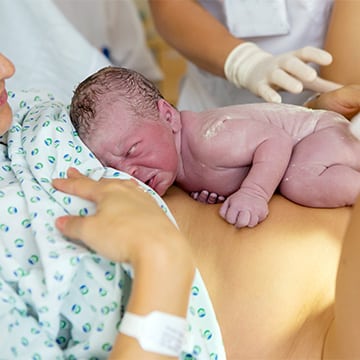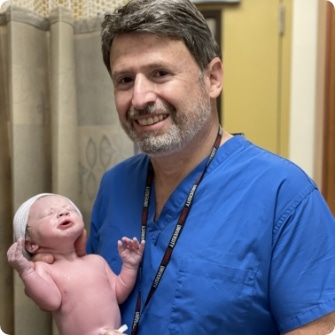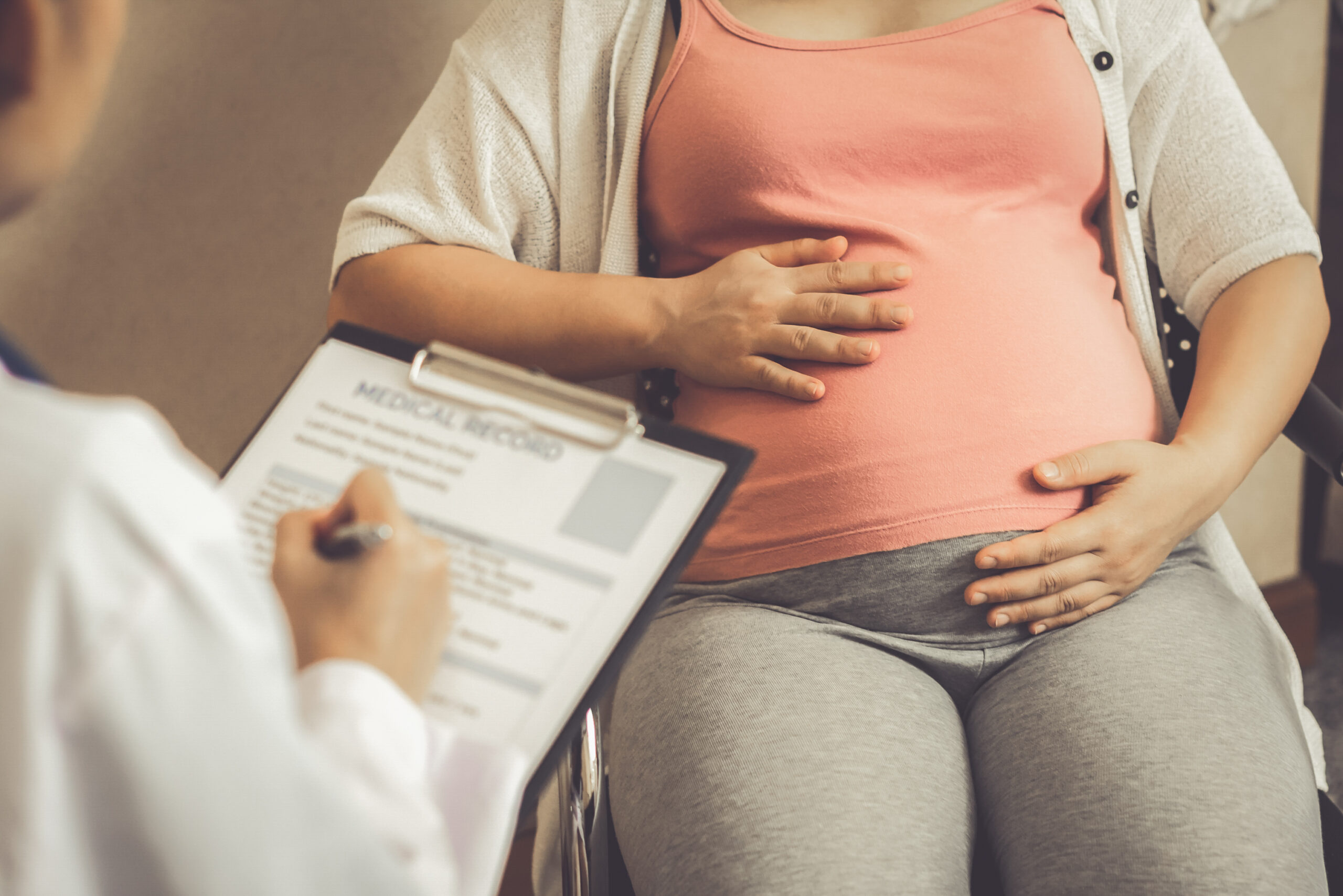
QUICK LINKS
What is Natural Childbirth?

When it comes time for a pregnant woman to give birth, there are a number of birthing scenarios that may occur. One of them may be natural childbirth, or a vaginal birth using no medications (including pain medication). Women may choose natural childbirth for many reasons, including remaining in control of their body as much as possible, being an active participant in labor, and experiencing the natural, unhindered event of birth. Natural childbirth involves a vaginal delivery without the use of medications for pain relief, allowing you to experience labor and birth with full awareness and control. Many women use natural childbirth techniques such as deep breathing, a birthing ball, and breathing techniques to manage labor pain, especially during active labor and early labor stages. This option is often a safe one for women with low-risk pregnancies.
“I highly recommend Dr. Tepper!He is highly professional, experienced, and calming. My pregnancy and birth were such a positive experience thanks to him and his lovely staff at the clinic.”
SEE MOREThe Benefits of Natural Childbirth
If you choose to have your baby naturally, you must accept that there is a potential for discomfort and pain during the birthing process. However, there are many benefits to natural childbirth, including:
- The avoidance of side-effects associated with epidurals.
- Shorter pushing time.
- Decreased risk of needing interventions.
- Little potential for harmful side effects to you or your baby.
- Ability to change birthing positions.
- Quicker recovery after birth.
- And more.
Qualifications for Natural Childbirth
Not everyone is a candidate for natural childbirth, which is why a thorough evaluation by Dr. Tepper is important. In general, women with low-risk pregnancies, no history of complications, and a desire for a medication-free delivery are the best candidates. Factors such as the baby’s position, overall maternal health, and prior delivery history will all be considered when determining if natural childbirth is a safe option for you. While this approach is typically safe for low-risk pregnancies, those with a high risk pregnancy may require additional monitoring or interventions, including steps to induce labor if uterine contractions do not begin on their own. Whether you deliver in a hospital or birthing center, your birth experience can be deeply personal and empowering with the right preparation and support.

MEET DR. ALEX TEPPER
Welcome to my practice. Let me introduce myself and my practice philosophy. I am a board certified OB/GYN in practice for over 20 years and have been a solo-practitioner on the Upper East Side of Manhattan since 2000. All deliveries are performed at The Mount Sinai Medical Center where I went to medical school and at Lenox Hill Hospital.
Preparing for Natural Childbirth
If you are interested in natural childbirth, it is important to speak with Dr. Tepper regarding the possible risks and if you are a good candidate for this option. Having a set birth plan before labor will help to make your experience more comfortable. Many women choose to have a natural delivery in a traditional hospital setting, though birth in an alternative setting such as at home is always an option. With guidance from your healthcare team, the support of a labor partner or support person, and tools learned in childbirth classes, you can explore natural pain management techniques to reduce the need for medical interventions. Overall, it is always a good idea to learn as much as possible before labor about both natural childbirth, coping methods, and what to expect during labor before your delivery date. Dr. Tepper will be happy to discuss these topics with you.
During Natural Childbirth
The natural labor process can be broken down into three stages:
- The first stage starts when you begin having contractions, which will start out short and irregular and become longer and more regular. Over time the cervix will slowly open to 10cm dilated.
- The second stage (also called the pushing stage) begins once you are fully dilated. Your baby’s head will move down out of the uterus and into the birth canal. You can then deliver your baby.
- The third and final stage begins after the birth of your baby and ends with the delivery of the placenta. During natural childbirth, you will wait for your placenta to deliver with your effort, which may take up to an hour following birth.
Every pregnancy is different, and there is a wide variation of the length of labor. For first-time mothers, labor can take anywhere between 10-20 hours, however, vaginal births are often quicker than other methods.
Post Natural Childbirth Care
Many women find that they feel alert and physically capable shortly after a natural childbirth. However, it is still important to rest and allow your body time to heal. Dr. Tepper and his team will monitor you for any signs of postpartum bleeding, infection, or other concerns and provide guidance on caring for yourself and your baby during the first few days. Breastfeeding support, emotional well-being, and follow-up care are all part of recovery.re often quicker than other methods.
Our Blog

Why Are Providers Obsessed With Iron in Pregnancy

What to Do When You Miss a Pill Step by Step-by-Step for Late and Missed Doses

Gabriella Tepper joins Alex Tepper OBGYN
Frequently Asked Questions
How do you prepare for Natural Childbirth?
Is natural childbirth better for the baby?
How can I lower pain during a Natural Childbirth delivery?
What position is best for Natural Childbirth?
Where can I have a natural childbirth?
What if I change my mind?
What exercises help you prepare for natural childbirth?
What can prevent you from natural childbirth?
What are the side effects of natural childbirth?
What are the risks of natural childbirth?
Do you heal faster after natural childbirth?
Are natural births riskier?
Can you have a natural childbirth after a cesarean?
What non-medication methods can be used to ease pain during labor?
How common is it to poop in labor during natural childbirth?
What does it feel like to give birth naturally?
What is the most painful part of natural childbirth?
What is considered natural childbirth?
Do babies feel anything during labor?
Can you feel your baby coming out with an epidural?
Do contractions or pushing hurt more?
Is natural birth bearable?
Can I refuse to give birth on my back?
What do babies do during contractions?
What are the signs that labor has begun?
What is the average delivery time for a first baby?
Learn More About Natural Birth
Choosing natural childbirth is a personal decision, and Dr. Tepper is here to provide you with the information and support you need to feel confident in your choice. If you are considering this option, schedule a consultation to discuss your goals and review your health history. Together, we can determine if natural childbirth is the right fit for your birth plan.
BOOK AN APPOINTMENT
Whether you are a new or returning patient, Dr. Tepper can assess your concerns and discuss your options to find the most comfortable and convenient care for you. To get started, call our office to set up an appointment.
CALL FOR APPOINTMENT BILLING & INSURANCE

